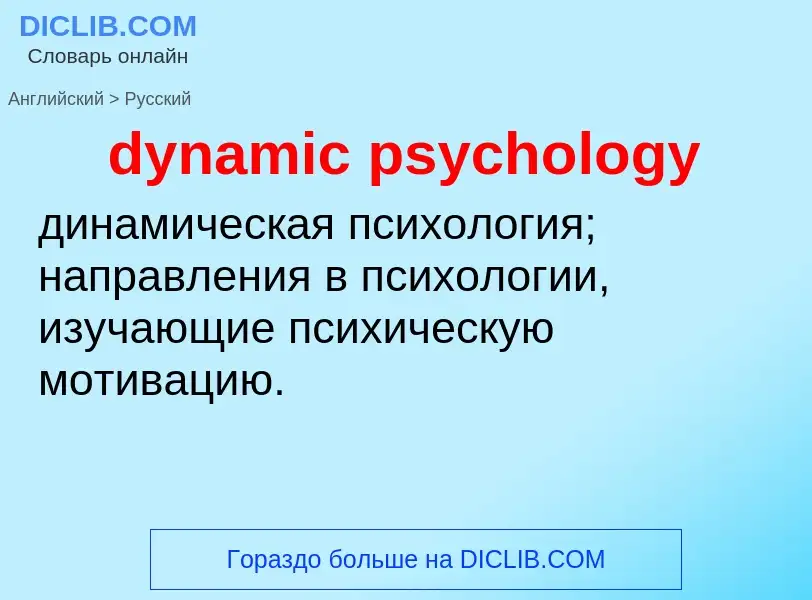Tradução e análise de palavras por inteligência artificial ChatGPT
Nesta página você pode obter uma análise detalhada de uma palavra ou frase, produzida usando a melhor tecnologia de inteligência artificial até o momento:
- como a palavra é usada
- frequência de uso
- é usado com mais frequência na fala oral ou escrita
- opções de tradução de palavras
- exemplos de uso (várias frases com tradução)
- etimologia
dynamic psychology - tradução para russo
[saikəudai'næmik]
медицина
психодинамический
прилагательное
общая лексика
психодинамический
связанный с мотивацией или побуждениями
[saikəudai'næmiks]
медицина
психодинамика
существительное
общая лексика
психодинамика
(бессознательные) побуждающие силы
Definição
Wikipédia

Psychodynamics, also known as psychodynamic psychology, in its broadest sense, is an approach to psychology that emphasizes systematic study of the psychological forces underlying human behavior, feelings, and emotions and how they might relate to early experience. It is especially interested in the dynamic relations between conscious motivation and unconscious motivation.
The term psychodynamics is also used to refer specifically to the psychoanalytical approach developed by Sigmund Freud (1856–1939) and his followers. Freud was inspired by the theory of thermodynamics and used the term psychodynamics to describe the processes of the mind as flows of psychological energy (libido or psi) in an organically complex brain.
There are four major schools of thought regarding psychological treatment: psychodynamic, cognitive-behavioral, biological, and humanistic treatment. In the treatment of psychological distress, psychodynamic psychotherapy tends to be a less intensive (once- or twice-weekly) modality than the classical Freudian psychoanalysis treatment (of 3–5 sessions per week). Psychodynamic therapies depend upon a theory of inner conflict, wherein repressed behaviours and emotions surface into the patient's consciousness; generally, one's conflict is unconscious.


![[[Ernst von Brücke]], early developer of psychodynamics [[Ernst von Brücke]], early developer of psychodynamics](https://commons.wikimedia.org/wiki/Special:FilePath/Ernst willhelm von bruecke.jpeg?width=200)
